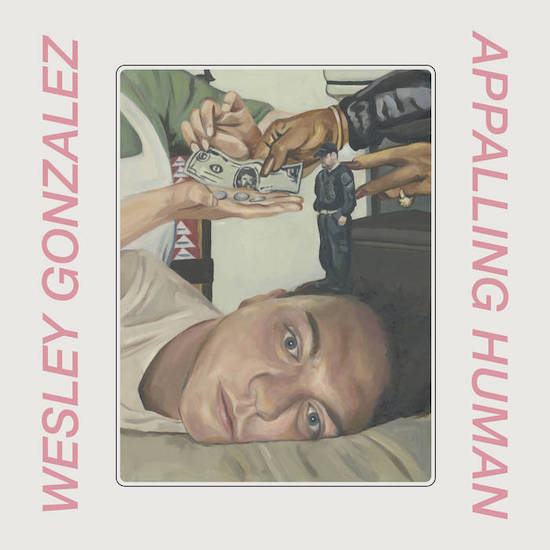These days, the ubiquity of appalling people – in positions of power or sat with their thumbs illuminating a touch-screen dancefloor, throwing shade instead of shapes – can really take its toll. On Wesley Gonzalez’s Appalling Human, his unabashedly pastiche second album, the songwriter delves further into excruciating levels of self-criticism. From relationship failings to poor comedic efforts and acerbic remarks aimed at his peers, Gonzalez is extremely charming in his boundless self-deprecation set to effervescent 80s synth-pop.
It’s been five years since Let’s Wrestle, his former vehicle for fun-loving sweet indie tracks, disbanded. Sonically, his solo material couldn’t be further from his career origins, a shift ignited by Gonzalez setting his guitar aside to write songs on the piano. The Londoner describes the follow-up to 2017’s Excellent Musician (album titles are his forte, evidently) as his “post-therapy” album. Before we enter this tonally kaleidoscopic world, we’re given an insight into this narrative arc from a handful of song titles; ‘If I’m Sad’, ‘Fault of The Family’, and ‘Used To Love You’.
With Wesley Gonzalez’s previous record, his arrangements and vocal performances were turned up to eleven, demonstrating an eagerness in exploring this new soundscape. Here, the dust has settled and he sounds extremely comfortable transitioning from neon-tinged songs made to soundtrack Friday nights before encapsulating the lethargy that descends on Sunday evening as the dread of facing reality and a new week looms. Coupled with his dexterous cadence, the varied tones of synth and keys are integral in creating Appalling Human’s many moods.
In terms of the album’s blueprint, Gonzalez cited Yellow Magic Orchestra, Pulp, late ’90s R&B, and Arthur Russell as sources of inspiration that informed these compositions. There are generous helpings of those aforementioned influences broadening the scope of his infectious electro-pop tracks. It’s when you close your eyes and listen closely, however, that Gonzalez recalls certain motifs identifiable to early era MGMT on ‘If I’m Sad’, while opener ‘Tried To Tell Me Something’, its bombastic beat, exuberant sax solo and fuzzed synths take the listener back to the first wave of 80s-nostalgia synth-pop from Golden Silvers. Elsewhere, as ‘Fault Of The Family’ evolves from the 808 into hefty synths, conjuring a mash-up of Giorgio Moroder and Justice.
Sonic similarities aside, there are instances across this LP where Gonzalez’s lyricism taps into the evocative (and relatable) way Richard Dawson articulates personal shortcomings and disdain for certain societal behaviours. These feelings and observations stem from feeling inadequate as a romantic partner (“I’m not fit to make you smile”), indulging in cheap booze (“This beer just cost £2.99”), cutting remarks (“A thick skull only gets you so far”) and observing the materialistic streak that grips people (“A granola bar freely given away, is this the highlight of your day?”). It’s these moments that help breakdown the barrier between artist and audience.
In these packed arrangements, Wesley Gonzalez thrives amongst dense layers of buoyant bass riffs, jaunty piano melodies and stunning sax solos. Yes, appalling people are all around us, but at least we have these invigorating songs to fill our ears.


